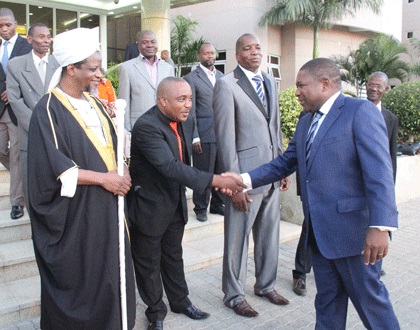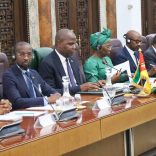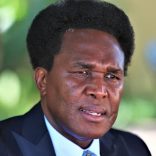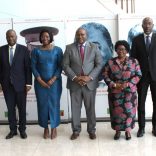Algeria and Mozambique expand economic, education and security ties
Watch: Nyusi briefs minor parties on peace talks, withdrawal of armed forces from positions in Gorongosa

Noticias
Mozambican President Filipe Nyusi on Monday met with representatives of several minor political parties, none of whom hold any seats in the Mozambican parliament, the Assembly of the Republic, and assured them that he is doing all in his power to guarantee a definitive peace.
He said that the truce declared by Afonso Dhlakama, leader of the Renamo rebels was important, in that people are no longer dying in the conflict. The truce was reached in late December, after telephone contacts between Nyusi and Dhlakama. Initially only for a week, the truce has been repeatedly renewed, and earlier this month Dhlakama extended it for an indefinite period.
Last week Dhlakama complained of slowness in the withdrawal of the armed forces from positions in the central district of Gorongosa, where he is currently living in a Renamo military base.
Nyusi told his visitors that the Mozambican Armed Forces (FADM) have been withdrawn from some parts of Gorongosa, but added that winding down a conflict “is not linear and takes time”.
“It is not easy to pull out of a base that has been occupied for many months”, he said. “You have to take all the equipment with you”. However, he had remained in discussions with Dhlakama who had made suggestions about how to make the procedure more flexible.
Nyusi said this was also a matter to be discussed within the working group on military matters set up by the government and Renamo. He insisted that both this group and the working group on decentralisation are meeting and will reach consensus.
The great secret, he added, lies in building trust between the two sides.
The group of minor parties was headed by Yaqub Sibindy, leader of the Mozambique Independent Party (PIMO), which is a thinly disguised Islamic party. Last week Sibindy boasted that he had persuaded a group of 40 minor parties to support Renamo in the next elections.
Renamo has not commented on this, but if minor parties hope to enter parliament on the coat tails of Renamo, they are likely to be disappointed. Renamo did form an alliance with a gaggle of minor parties, known as the Renamo-Electoral Union coalition, for the 1999 and 2004 elections, but abandoned the coalition in 2009. The price paid for the coalition was to give Renamo parliamentary seats to leaders of the minor parties, much to the annoyance of Renamo members.
The figure of 40 minor parties may sound impressive, but it is unlikely to bring many extra votes to Renamo. For most of these groups are tiny, with just a handful of members. They have no offices, no publications, no websites, and only appear in public at electoral periods, when money from the state budget is distributed to parties that run candidates.
26 minor political parties took part in the 2014 parliamentary elections. The best result that any of them achieved was 0.21 per cent. Several received less than 0.1 per cent of the vote. One group, calling itself the Popular Democratic Party (PPD) only stood candidates in Maputo City, where it won just 158 votes – as a percentage of the national vote, this rounded down to 0.00 per cent.












Leave a Reply
Be the First to Comment!
You must be logged in to post a comment.
You must be logged in to post a comment.